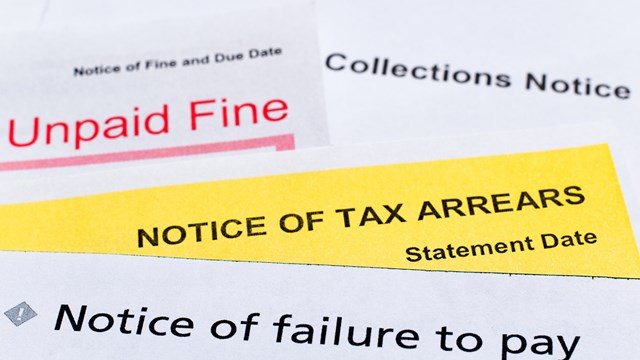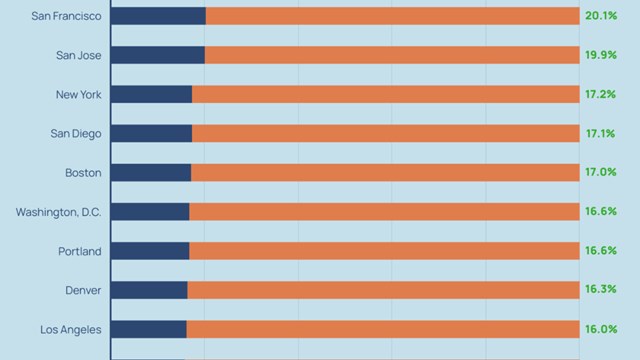Just as no household can function without a good, sound budget, neither can a homeowner's association. Creating and maintaining a budget that can guide a condo community through an entire year's worth of finances is one of the most important keys to effective management. Residents put their trust in their board members to plan ahead, plan responsibly and consider all sides of the financial equation so that unexpected—and sometimes expensive—emergencies do not crop up.
Certainly, that can be a lot of pressure on any association board. With that in mind, what is the best way for well-intentioned board members to go about setting a budget? What are some common pitfalls, and what are the best ways to avoid them? As with anything, being realistic, listening to good advice and having a willingness to make the tough choices all will come in handy when it comes to making the budgeting process work well.
Getting the Ball Rolling
Starting early can help make the budgeting process a bit less painful. Getting things going three or four months before the current budget expires should leave enough time to get the job done right.
The entire budgeting process should involve the board and the association's managing agent with advice from the accountant thrown in as needed. The first step always involves "[Taking a look] at the year-to-date actuals and then projecting what you're going to spend for the rest of the year," says Jules Frankel, CPA, of the accounting firm of Wilkin & Guttenplan in East Brunswick.
It's only by looking at current and past budgets that agents and board members will be able to track financial trends, both within the association itself and in the outside world. Predicting where items like the cost of fuel or lawn care may be heading also falls under the realm of the managing agent, who has the benefit of overseeing the financials for dozens or perhaps hundreds of condo associations facing similar financial situations.
With those trends in mind, board members and managers can begin projecting costs for the following year. "They'll want to look at the history of what's happened over the past several years," says Karen Sackstein, a Fairlawn-based CPA. "And they'll want to look at large, upcoming projects."
According to Rick Fry, a principal with RCP Management Co. in Princeton, looming legal costs or large capital improvement projects play a key role. "If a community is in litigation, they should consult with their attorneys to determine potential legal costs—or consult with an engineer or contractor to try to estimate future costs if there are large construction projects going on."
Those large, upcoming projects are where the reserve funding comes in. Reserve funds are dollars put aside in the annual budget for deferred maintenance and capital projects that are planned for and addressed on a regular schedule, one that is usually set by a reserve fund specialist. When it comes to folding the reserve funds into the budget, "Board members will want to look at whether the reserves are well-funded, determine if they've done the necessary study, and consider future capital replacements," Sackstein says.
Fry also suggests keeping a 'wish list' of viable or feasible intended projects for the upcoming year, and warns against not appropriating sufficient monies for major capital improvements—a mistake made all too commonly by some HOA boards.
Having a good reserve fund study in hand and making sure there are enough dollars in the budget to cover those projects means never getting caught flat-footed if a roof needs repair or plumbing systems need updating. And it means never having residents turn angry over unexpected assessments.
Once the reserve fund monies are in place, the budget can begin to take shape. Beyond those dollars, board members will take into consideration annual costs, new projects and regular maintenance issues and then determine how much revenue must be brought in to cover those costs for the upcoming year. When revenue and expenses find a happy medium, the budget is set.
Expecting the Unexpected
What's the biggest issue that throws a budget off-kilter? Being caught unprepared when things like landscaping or snow removal costs hit the roof. In fact, says Sackstein, something as seemingly innocuous as the cost of shoveling sidewalks really can be the straw that breaks the budgetary back for many associations.
Fry agrees. "Having an unrealistic sense of what services actually cost can be a problem," he says. "You have to be prepared for unexpected expenses."
Sometimes boards and managers will try to cut corners in the budget by low-balling those estimated snow removal costs. It's rarely an intentional thing—more a case, perhaps, of wishful thinking. If an association finds that the last two winters have brought very little snow, but they're still paying a hefty contract to the removal crew, it may seem wise to reduce the size of that contract. And it will save money…until the day the blizzard that buries the East Coast hits. Then those added costs can put a huge dent in an otherwise balanced budget, leading to substantial assessments and a whole lot of angry residents.
Many associations that underestimated the cost of fuel are feeling that same pinch this year. Insurance costs also can put a budget into the red zone. That's why a careful analysis of trends is so important, and why it's helpful to have an attentive property manager. "By managing multiple buildings, the agent should be able to see trends as they emerge," Frankel says.
Fry also advises boards to "budget a certain amount [of room] for bad debts. It's an unfortunate reality that people can go into bankruptcy and be unable to pay their monthly fees."
The key is to prepare and then prepare some more. A recent article co-authored by Frankel in Wilkin & Guttenplan's Community Property Advisor newsletter suggests that board members focus serious attention on where things like bad debt allowances and operating contingencies fit into the plan.
"Include in your budget a line item which reflects an estimate of the amount that the association might not be able to collect this year," the article says. "Prior historical experience is a good reference point to develop and estimate for this number." Being prepared for unexpected operating costs also will help in the long run. The article suggests budgeting three to five percent of operating expenditures for a contingency fund.
Honesty – Always the Best Option
For board members, trying to be a financial hero almost never works out. In order to keep maintenance fees low or prevent annual increases, board members and agents may trim numbers when they should have stayed put, or ignore upward trends in things like insurance and landscaping or perhaps put off repaying last year's budget deficit for one more 12-month cycle. All of these things will go a long way toward ensuring that maintenance fees do not rise; they all, however, come with a serious risk of financial trouble later.
"A board member's most important fiduciary responsibility is to protect property values," Frankel says, meaning that no matter how much it may hurt, all expenses must be looked at, assessed and taken care of realistically.
"My advice is to be open and honest with unit owners," Sackstein says. "Rather than trying to be the hero, just have steady increases each year rather than (unexpectedly) hitting people with a big chunk or a huge assessment. If you are open and honest, people will be more receptive."
It's difficult to curtail that feeling of panic that may hit a board member when he or she sees costs surpassing the budget they worked so hard to craft. It's important to keep in mind, though, that even if a budget does go over, it's not the end of the world. First, the board and management will need to re-examine the entire budget and see if they can find available dollars to cover the expense. If not, a special assessment may be necessary, or the loss can be put into next year's budget.
It is vital to ensure that the catch-up line item actually gets placed in that following year's budget, Sackstein says. Don't put off recouping the loss. If the association is carrying debt, the boards need to make sure to build a payment plan into the budget, even if it will take a year or two to pay everything off. "Having a year or two with a deficit and not catching up with it is like rolling a barrel down a hill," Sackstein says. "It's going to get out of control."
Board members should not berate themselves if their budgets miss their targets now and then. "This is an exercise in fortune-telling," Sackstein says. "Some years you'll be a little over, some years a little under. It's a tough thing to plan. The goal is not to hit it every time, but to break even over a period of time."
Whatever the situation, maintaining an open and honest line of communication between board members and association members will help. Timeliness can be especially important. For example, in the case of an assessment to cover snow removal costs, it helps to broach that subject while the evidence for that expense is still "on the ground," so to speak. If a resident gets their bill for snow removal on a clear spring day, some feelings of resentment are bound to surface. Discussing the issue while everyone still has to wear a parka and wade through the tundra to get to their cars will create a bit more understanding.
A Little Learning
Putting a budget together can be a lot of pressure, especially for board members who may not feel comfortable with big numbers and accounting terminology. Getting educated and becoming familiar with key concepts can help allay that anxiety enormously. Frankel suggests talking with other board members. "If there's a finance committee, talk to them and see what they're doing. See the nitty-gritty of what's going on," he says. "It helps to get your hands dirty."
Sackstein suggests turning to a professional as well. "They should talk with the board's accountant or their property manager and ask questions," she says. "It's important to understand the details that support the numbers—how did they come up with $80,000 for landscaping? Ask questions. And if you don't get the answer you need, just ask again."
Board members also should keep their eyes open for budget-specific seminars hosted by organizations such as the Community Associations Institute (CAI).
With proper preparation, careful analysis and a bit of good luck, creating a workable and realistic budget should not be too painful. For the board members involved in the process, it is a lot of responsibility, but in the end, they should take pride in the knowledge that they have done their part to cultivate financial good health for the community they call home.
Liz Lent is a freelance writer and a frequent contributor to The New Jersey Cooperator.







Leave a Comment